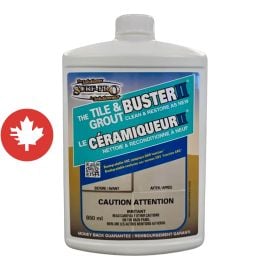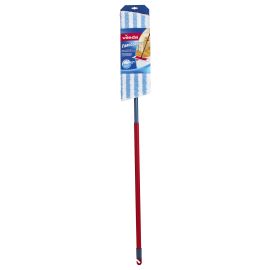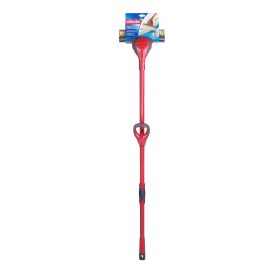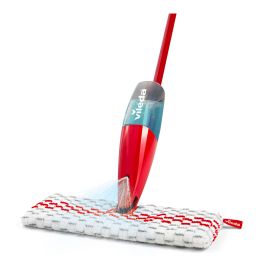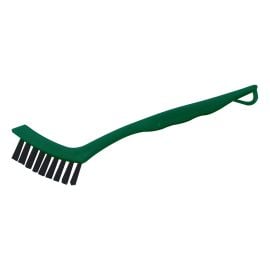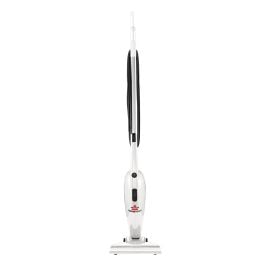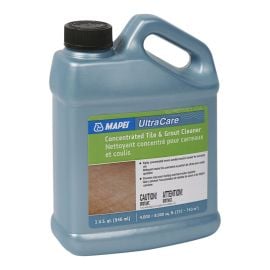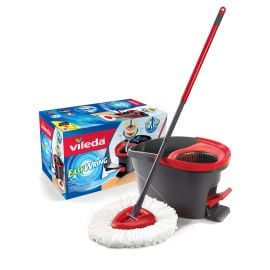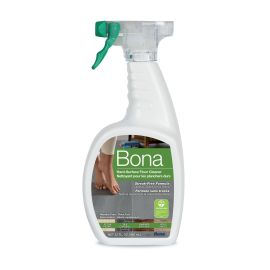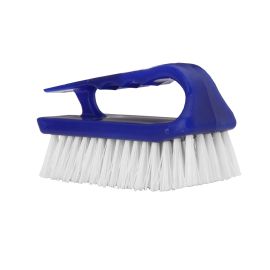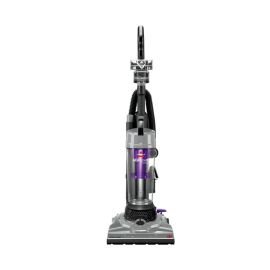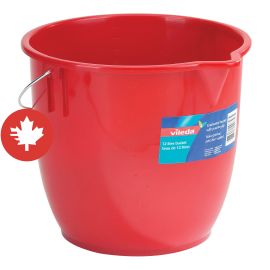Ceramic tiles are resistant to heat, water and stains, making them an ideal choice for kitchens, bathrooms and laundry rooms. Beautiful and durable, they come in a wide variety of styles, patterns, colours and textures, adding a touch of sophistication sure to elevate your home or cottage—and its resale value. But there’s a catch! Despite their durability, ceramic tiles and grout can grow dingy over time, especially if the tiles are porous. Luckily, we’ve got the inside scoop on how to keep your ceramic floors looking their best. From grout cleaning to weekly maintenance, we’ve got you covered with our expert tips.
All about ceramic and porcelain tiles
Ceramic tiles are made up of two main parts: a sturdy base, known as the biscuit (or bisque), and a top layer of enamel. The biscuit is typically crafted from either stoneware or porcelain, which is what makes it durable, while, the enamel layer shields the base from friction, abrasion, wear and moisture.
Now, what sets ceramic apart from porcelain? Ceramic is made from clay fired at temperatures ranging from 980 °C to 1,200 °C. Porcelain, on the other hand, is made from a blend of stoneware and clay fired at temperatures between 1,200 °C and 1,400 °C. Generally, porcelain tiles are stronger, more durable, and have better moisture resistance than ceramic tiles.
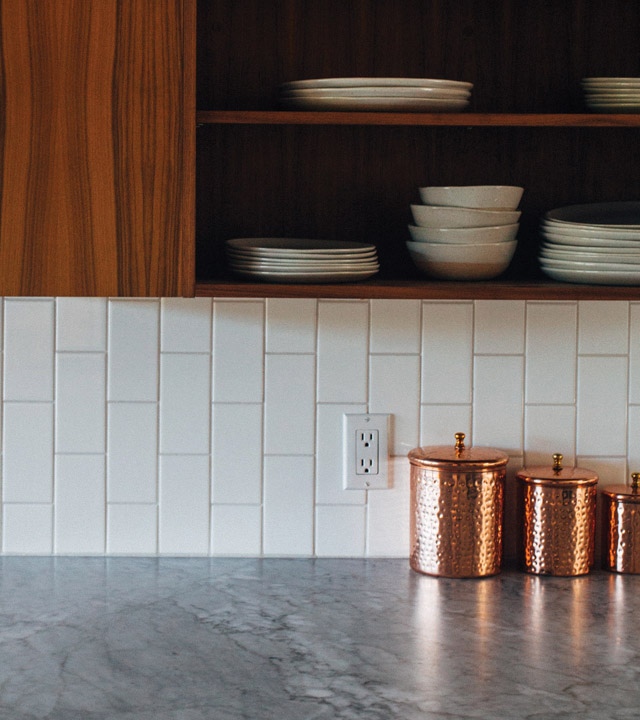
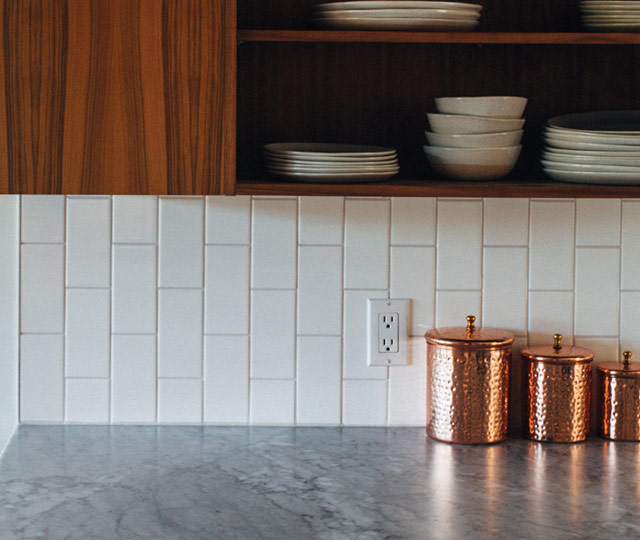
Pro tip: The hardness of a ceramic tile glaze is rated on a scale of 1 to 5 using the PEI rating system. The higher the number, the tougher the tile. So think twice when making your selection!
Regular maintenance: 3 types of cleaning products
Although hot soapy water is often all you need to tackle the daily grime, it’s sometimes necessary to use specialized products to remove stubborn stains. Before heading off to the store, ask yourself these two questions:
- What type of tile is it?
- What needs to be cleaned?
That way, you’ll find a product that won’t damage your tiles. To learn more, explore the three main categories of ceramic and porcelain cleaners.
1. Neutral products for gentle yet effective cleaning
Perfect for routine cleaning, these products can be used on any type of surface. They are specifically designed to clean natural stone and won’t damage the sealant on the grout.
Pro tip: Look for pH-neutral products that are gentle, effective, and safe to use on most types of flooring.
2. Alkaline products for deep-cleaning action
These products can be used on most surfaces for deep cleaning. They will not damage grout or most types of stone but may shorten the sealant’s lifespan if used too often. When in doubt, follow the manufacturer’s recommendations and the instructions on the package.
Pro tip: Alkaline cleaners are great at removing grease, which is ideal for kitchen floors and backsplashes.
3. Acidic products for heavy-duty jobs
Acidic cleaners are made to tackle tough jobs—like cleaning mineral deposits, rust spots, and cement and gypsum residue. Acidic products are perfect for effective occasional maintenance. But be careful! They shouldn’t be used too often, as they can cause premature damage to the grout. And they’re not recommended for use on limestone surfaces, including marble and travertine.
Pro tip: Acidic cleaners are ideal for entryway floors that suffer from the harsh effects of winter, including snow, salt, and slush marks.
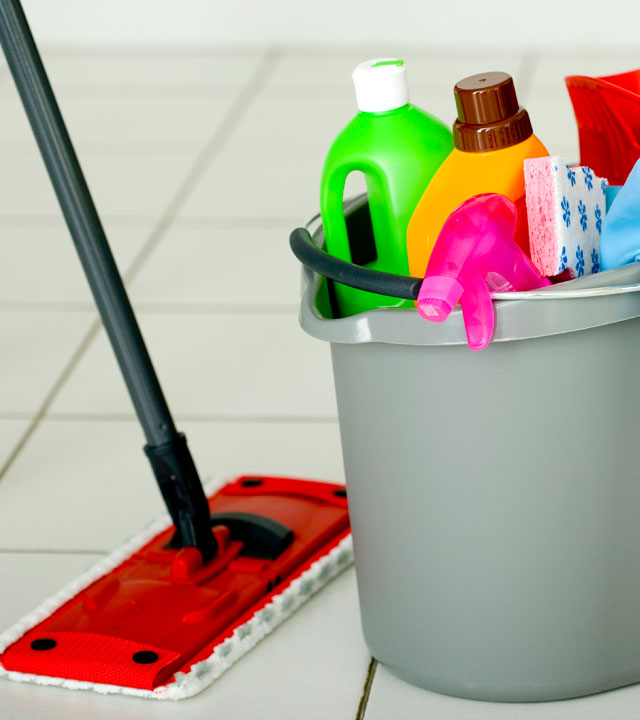
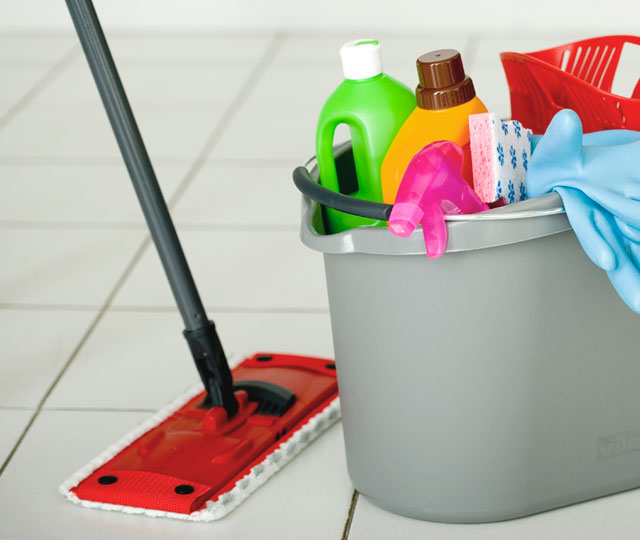
Grout cleaning
You’ve done your weekly cleaning routine, but your ceramic floor still lacks its usual shine. Frustrating, isn’t it? Occasionally, a deep grout cleaning is essential to eliminate built-up grime and restore your floor’s luster.
Here are five easy steps to get the job done in no time:
- Purchase a cleaner specifically designed for ceramic or porcelain grout
- Apply the product to the grout and let it sit for 5 to 10 minutes
- Scrub the grout vigorously with a nylon brush
- Clean the floor with a damp mop
- Wipe up excess liquid with a dry cloth
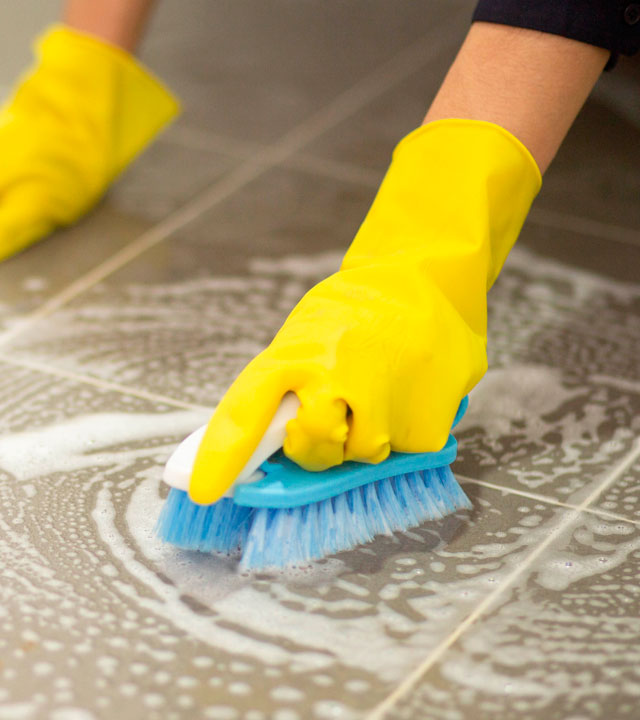
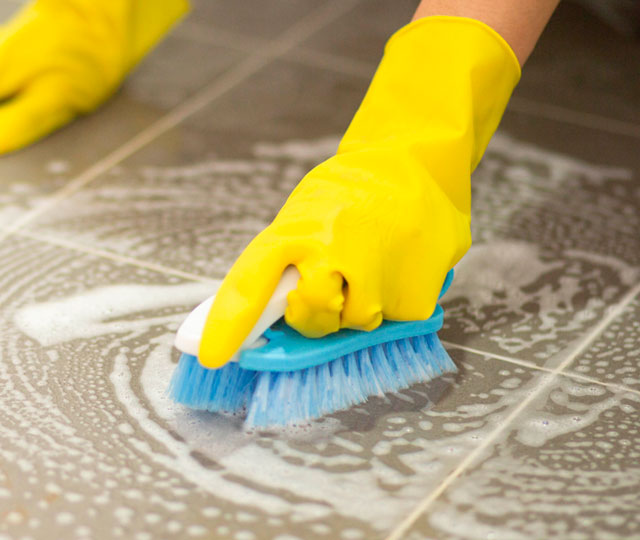
Pro tip: For best results, use a stiff bristle brush and work in small sections. A toothbrush can also do the trick, as long as you’re patient!
Eco-friendly DIY solutions
Some DIY solutions can be just as effective as store-bought cleaners. Not only are they environmentally friendly, they’re also easy on your wallet. Start by mixing water with white vinegar, hydrogen peroxide or baking soda. Apply the mixture to your grout and tiles and scrub with a nylon brush. When finished, rinse well with a damp cloth. Voilà!.
Ceramic floors that sparkle
With these simple yet effective tips, keeping your ceramic and porcelain floors clean and sparkling will be a breeze. Whether you’re looking for regular maintenance or a deep clean, you now have an arsenal of tools and products to preserve your floors and keep them looking their best.
To find the right brushes, cloths and cleaning products for your floors, come visit us at one of our stores. Our expert advisors are there to help you and answer all your questions. Together, we’ll find the products and solutions best suited for your floors.
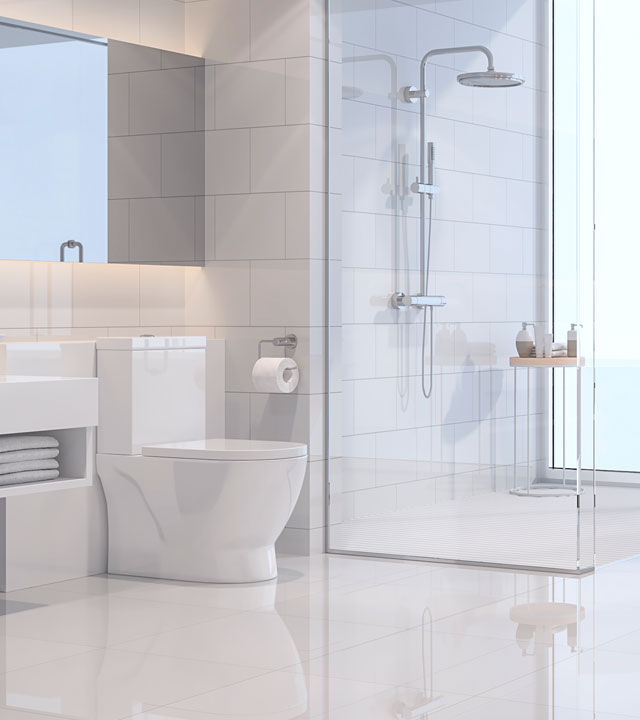

En savoir plus sur le plancher stratifié
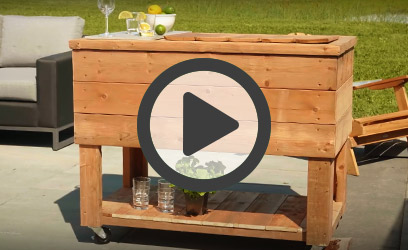

Installer son plancher flottant
Lorem ipsum dolor sit amet, consectetur adipiscing elit. Morbi sed ligula lacinia, pellentesque lacus vel, ornare ipsum. Nam quis rutrum arcu.


Changer une planche de plancher flottant
Lorem ipsum dolor sit amet, consectetur adipiscing elit. Morbi sed ligula lacinia, pellentesque lacus vel, ornare ipsum. Nam quis rutrum arcu.


Entretenir son plancher stratifié
Lorem ipsum dolor sit amet, consectetur adipiscing elit. Morbi sed ligula lacinia, pellentesque lacus vel, ornare ipsum. Nam quis rutrum arcu.
Cleaning essentials
Shop by category
The information in this article is intended as a guide only and may not be applicable in certain situations. When in doubt, talk to a local BMR expert.
